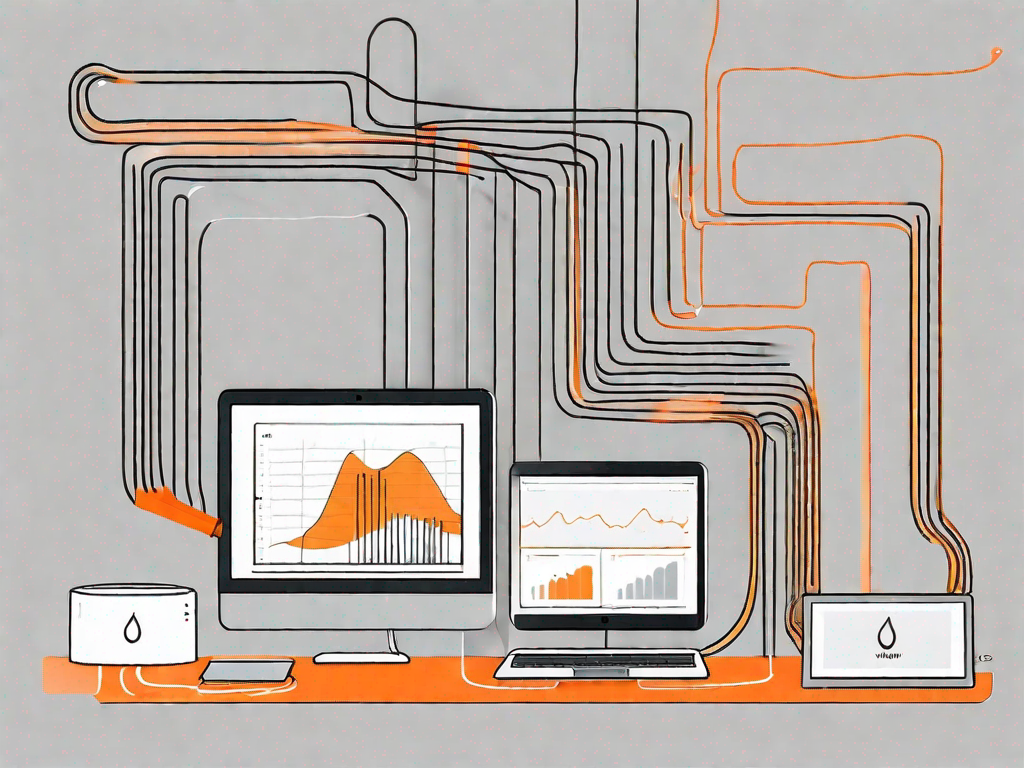.svg)
How AI Agents Detect and Respond to Cybersecurity Breaches
.svg)

In an increasingly digital world, the threat of cybersecurity breaches looms large over organisations and individuals alike. As cybercriminals become more sophisticated, the need for advanced security measures has never been more critical. Enter Artificial Intelligence (AI) agents, the cutting-edge technology that is revolutionising the way we detect and respond to cybersecurity threats. These intelligent systems are designed to identify, analyse, and mitigate potential breaches, offering a robust defence against the ever-evolving landscape of cyber threats.
Understanding the Role of AI in Cybersecurity
The Evolution of Cyber Threats
Cyber threats have evolved significantly over the past few decades, transitioning from simple viruses and worms to complex, multi-faceted attacks that can cripple entire networks. This evolution necessitates equally sophisticated defence mechanisms. AI agents are at the forefront of this battle, equipped with the ability to learn and adapt to new threats as they emerge. By leveraging machine learning algorithms, these agents can identify patterns and anomalies that may indicate a potential breach, providing a proactive approach to cybersecurity.
AI Agents: The New Guardians of Cybersecurity
AI agents serve as the new guardians of cybersecurity, offering a level of vigilance and responsiveness that far surpasses traditional security measures. These agents are capable of processing vast amounts of data in real-time, enabling them to detect threats that might otherwise go unnoticed. By continuously monitoring network traffic and user behaviour, AI agents can swiftly identify and respond to suspicious activities, effectively neutralising threats before they can cause significant damage.
The Benefits of AI in Cyber Defence
The integration of AI into cybersecurity strategies offers numerous benefits. Firstly, AI agents can significantly reduce the time it takes to detect and respond to breaches, minimising potential damage. Secondly, they provide a scalable solution that can adapt to the growing volume of data and complexity of threats. Finally, AI agents can operate autonomously, freeing up human resources to focus on more strategic tasks. These advantages make AI an indispensable tool in the fight against cybercrime.
How AI Agents Detect Cybersecurity Breaches
Pattern Recognition and Anomaly Detection
One of the primary methods AI agents use to detect cybersecurity breaches is through pattern recognition and anomaly detection. By analysing historical data, these agents can establish a baseline of normal network behaviour. Any deviation from this baseline is flagged as a potential threat, allowing for immediate investigation. This method is particularly effective in identifying zero-day attacks, which exploit previously unknown vulnerabilities.
Behavioural Analysis
Behavioural analysis is another critical component of AI-driven cybersecurity. AI agents monitor user behaviour to detect any unusual activities that may indicate a breach. For instance, if a user suddenly accesses sensitive data they have never interacted with before, the AI agent can flag this as suspicious. This approach helps in identifying insider threats and compromised accounts, which are often difficult to detect using traditional security measures.
Threat Intelligence Integration
AI agents are also capable of integrating threat intelligence from various sources, enhancing their ability to detect and respond to breaches. By accessing a vast repository of threat data, these agents can identify known attack vectors and signatures, allowing for quicker identification and mitigation of threats. This integration ensures that AI agents are always equipped with the latest information on emerging threats, providing a dynamic defence against cybercriminals.
Responding to Cybersecurity Breaches with AI
Automated Incident Response
Once a potential breach is detected, AI agents can initiate an automated incident response to contain and mitigate the threat. This process involves isolating affected systems, blocking malicious IP addresses, and deploying patches to vulnerable software. By automating these tasks, AI agents can significantly reduce the time it takes to respond to an incident, minimising the impact of the breach on the organisation.
Adaptive Learning and Threat Mitigation
AI agents are designed to learn from each incident, continuously improving their ability to detect and respond to future threats. This adaptive learning capability allows AI agents to refine their algorithms based on past experiences, enhancing their accuracy and effectiveness. As a result, organisations can benefit from a constantly evolving defence mechanism that becomes more adept at handling cyber threats over time.
Collaboration with Human Experts
While AI agents are highly effective in detecting and responding to cybersecurity breaches, they are not a replacement for human expertise. Instead, they complement human efforts by handling routine tasks and providing valuable insights into potential threats. Security professionals can leverage the data and analysis provided by AI agents to make informed decisions and develop more robust security strategies. This collaboration between AI and human experts creates a powerful defence against cybercrime.
The Future of AI in Cybersecurity
Emerging Technologies and Innovations
The future of AI in cybersecurity is bright, with emerging technologies and innovations poised to further enhance its capabilities. Developments in areas such as deep learning and neural networks promise to improve the accuracy and speed of threat detection, while advancements in natural language processing could enable AI agents to better understand and interpret complex data. These innovations will continue to drive the evolution of AI in cybersecurity, offering even greater protection against cyber threats.
Challenges and Considerations
Despite its many advantages, the integration of AI into cybersecurity is not without challenges. One of the primary concerns is the potential for AI systems to be exploited by cybercriminals. As AI becomes more prevalent, attackers may develop new techniques to bypass or manipulate these systems. Additionally, there are ethical considerations surrounding the use of AI in cybersecurity, particularly in terms of privacy and data protection. Organisations must carefully navigate these challenges to ensure the responsible and effective use of AI in their security strategies.
The Importance of Continuous Improvement
As cyber threats continue to evolve, it is crucial for organisations to remain vigilant and continuously improve their cybersecurity measures. AI agents play a vital role in this ongoing effort, providing a dynamic and adaptable defence against emerging threats. By investing in AI-driven cybersecurity solutions and fostering a culture of continuous improvement, organisations can stay one step ahead of cybercriminals and protect their valuable assets.
Conclusion
AI agents are transforming the landscape of cybersecurity, offering a powerful and proactive defence against the growing threat of cybercrime. By leveraging advanced technologies such as machine learning, behavioural analysis, and threat intelligence integration, these intelligent systems can detect and respond to breaches with unprecedented speed and accuracy. As the digital world continues to evolve, the role of AI in cybersecurity will only become more critical, providing organisations with the tools they need to safeguard their networks and data. Embracing AI-driven solutions and fostering collaboration between AI agents and human experts will be key to maintaining a robust and resilient cybersecurity posture in the face of ever-changing threats.
Let's
Let’s discuss how we can bring reinvigorated value and purpose to your brand.







.svg)